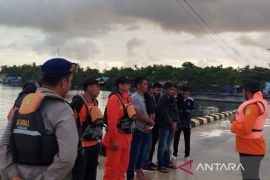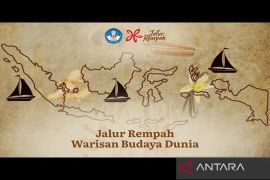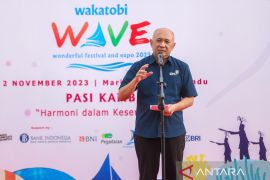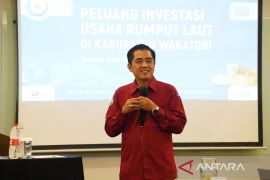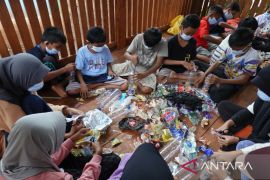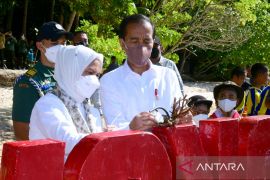Coral reefs living in the sea may produce oxygen to prevent global warming on the earth. Therefore their conservation is constantly maintained wisely in using various potentials in the seaKendari, SE Sulawesi (ANTARA News) - The marine ministers from six Coral Triangle Intensive (CTI) member countries planned to meet in Wakatobi district, Southeast Sulawesi province to discuss global climate change and weather anomalies in April 2011.
The meeting will be held at the initiative of the Association of All Indonesian Provincial Administrations (Apkasi), Coordinator of Natural Resources and Conservation Application of Apkasi Area Hugua said from Wakatobi on Sunday.
"The regents and mayors of the six CTI member countries will take part in the important and strategic meeting," Hugua, who is also Regent of Wakatobi, said.
He added that besides global warming issues and weather anomalies, the meeting will also discuss the importance of maintaining resilience of food coming from the sea, and wisdom in the management of marine and fishery resources.
In this context, Hugua said, the regents and mayors as the decision makers of local level in the six countries will promote a commitment on how to maintain and make use of the marine resources as food stuff on a sustainable basis and environmentally friendly.
" Coral reefs living in the sea may produce oxygen to prevent global warming on the earth. Therefore their conservation is constantly maintained wisely in using various potentials in the sea," he said.
Another important matter which will also be dealt with at the meeting, Hugua said in alternative energy in connection with the lack of fossil energy (natural oil) which had become a worry to the people on earth.
An important thing which will be discussed is how the regents and mayors make efforts to produce alternative energy especially bio energy for the welfare of people in the world.
"Basically, how to produce bio energy in place of fossil energy, so that the need of people for energy on earth could be fulfilled without destroying the environment," he said.
Hugua said the result of the meeting in April will be continued at a meeting in May 2011 involving Apkasi and Apeksi (Association of City Governments in Indonesia).
Besides Apkasi and Apeksi, the six countries, members of CTI Hagua said at the May meeting will be followed by donor institutions from the United States under the auspices of the United Nations.
"The May meeting will produce the Second Wakatobi Charter called Wakatobi Charter Two," he said.
Wakatobi Charter One Hugua said had been produced at the meeting of regents of the six CTI member countries held in Wakatobi in July 2009.
The charger, he said, contains seven points of commitments of the regent of the six countries in saving the environment and the energy of the earth.
"US Ambassador to Indonesia R Hume also signed Charter Wakatobi One," he said.
(*)
Editor: AA Ariwibowo
Copyright © ANTARA 2011
